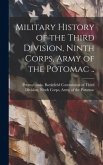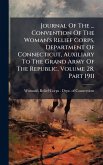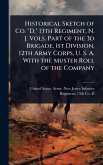"History of the Gatling Gun Detachment, Fifth Army Corps, At Santiago: With a Few Unvarnished Truths Concerning that Expedition," by John H. Parker, offers a detailed account of the deployment of the Gatling gun during the Spanish-American War. Specifically focusing on the Fifth Army Corps' experiences in Santiago, this volume delves into the practical application of this early rapid-fire weapon in a crucial military campaign. Parker's work provides insights into the U.S. artillery's role during this period, examining the Gatling gun detachment's activities and impact. This historical record sheds light on military science and technology, offering a glimpse into the realities of warfare at the turn of the century. Students of military history and those interested in the evolution of weaponry will find this a valuable resource. This meticulously prepared print republication preserves a vital firsthand perspective on a significant chapter in American military history. This work has been selected by scholars as being culturally important, and is part of the knowledge base of civilization as we know it. This work is in the public domain in the United States of America, and possibly other nations. Within the United States, you may freely copy and distribute this work, as no entity (individual or corporate) has a copyright on the body of the work. Scholars believe, and we concur, that this work is important enough to be preserved, reproduced, and made generally available to the public. We appreciate your support of the preservation process, and thank you for being an important part of keeping this knowledge alive and relevant.
Bitte wählen Sie Ihr Anliegen aus.
Rechnungen
Retourenschein anfordern
Bestellstatus
Storno









